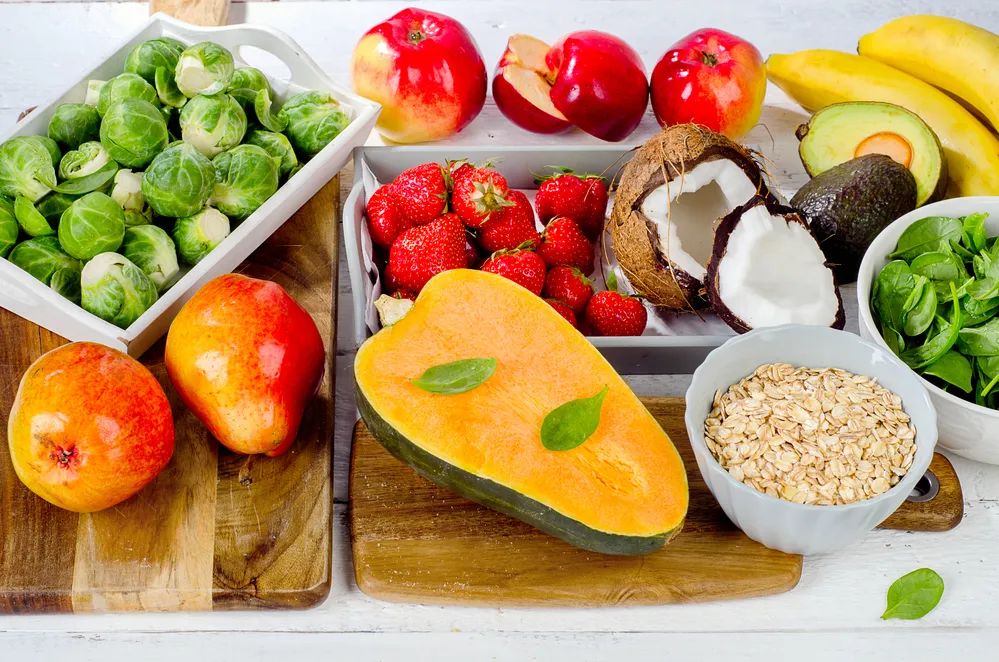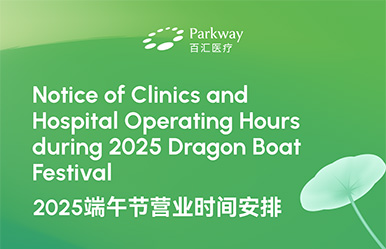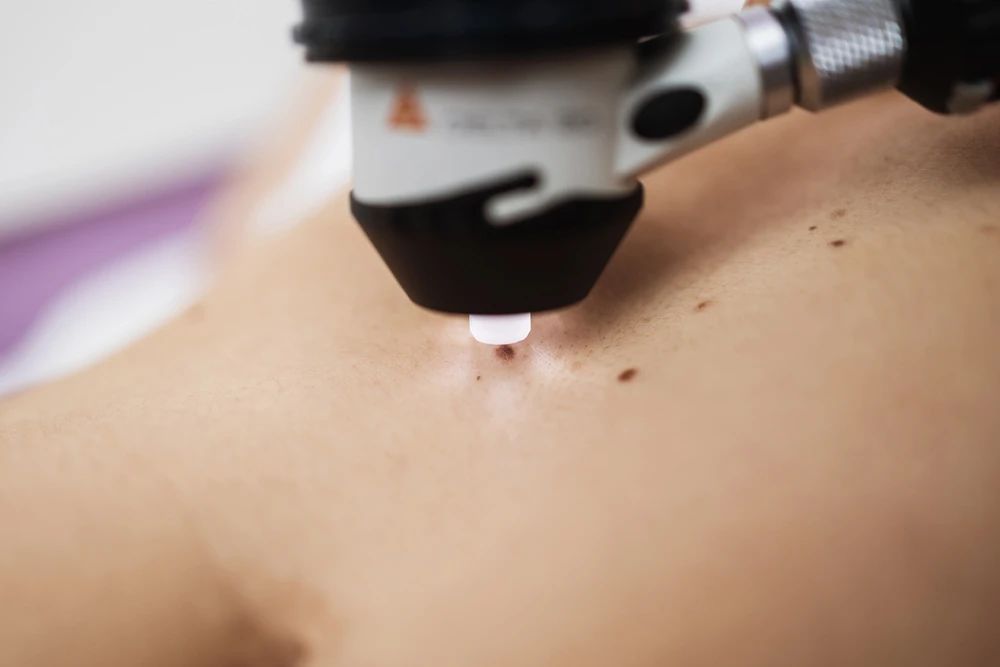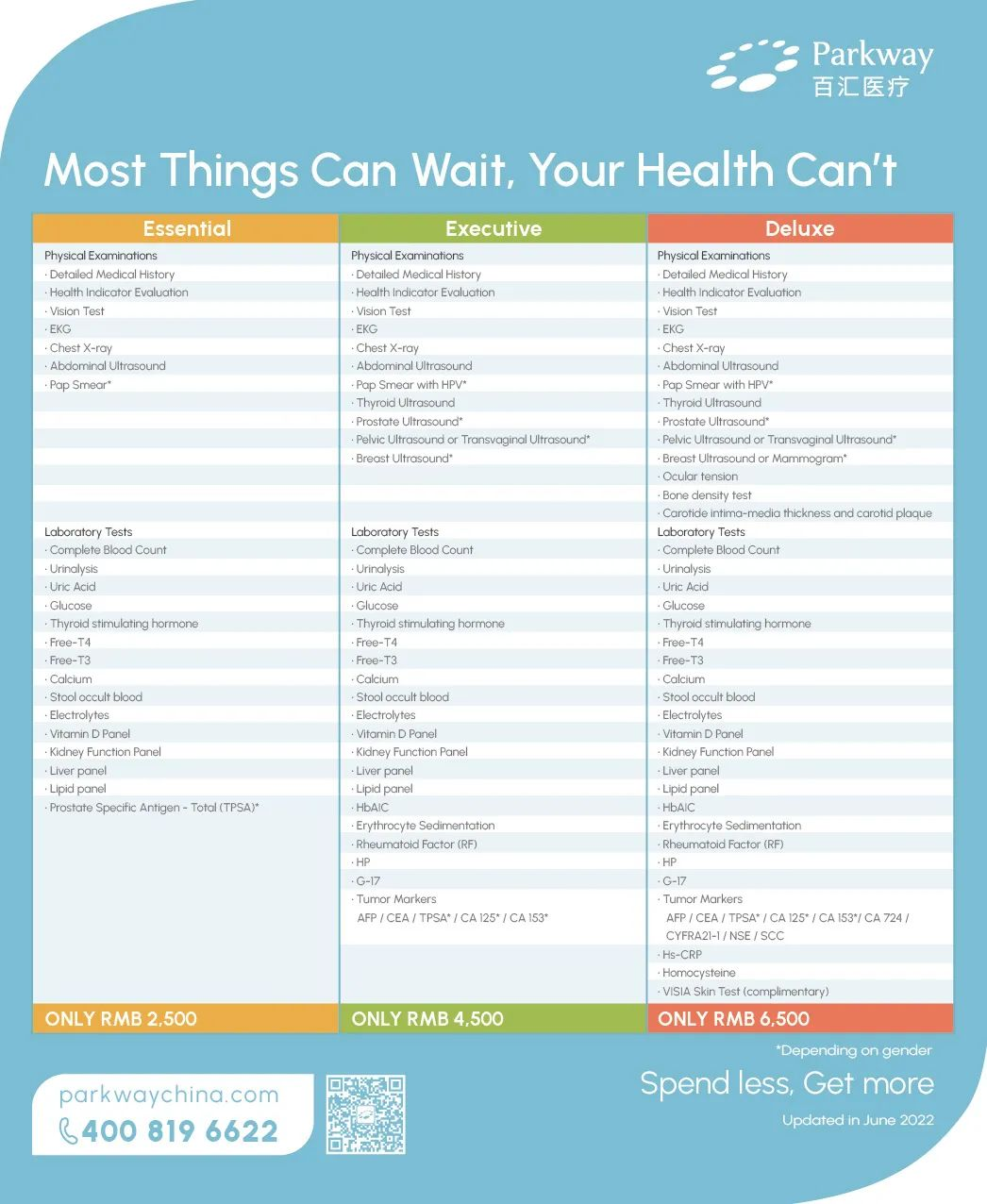Do You Know that Up to 50% of All Cancer Cases Are Preventable?
2023-02-24
PARKWAY 百汇医疗 Cancer is a scary word to most people. And most people are not aware that they can reduce their risk of cancer significantly. Only 5-10% of cancer cases are linked to genetics; the remaining 90-95% stem from environment and lifestyle factors and are potentially preventable. Recent research has shown that up to 50% of cancer deaths can be attributable to modifiable risk factors. This means that 50% of cancers can be avoided by a change in behaviour. As most cancers typically take 20 to 30 years to develop, it is never too late to take action in reducing your risk. Here are some tips based on research findings: 1 Do not smoke 25-30% of cancer cases are due to tobacco use. Tobacco has more than 7000 chemicals, 69 of which are known to cause cancer. 2 Drink alcohol only in moderation, if at all Alcohol is a carcinogen associated with approximately 4% of cancer cases. It increases the risk of various types of cancer especially liver, colorectal and breast cancer. Risk of cancer increases with the amount of alcohol consumed. Studies in women have shown that just one alcoholic beverage per day increases overall cancer risk by 6%. Alcohol use also contributes to weight gain which is also a risk factor. 3 Maintain a healthy weight Being overweight by any amount increases the risk of several cancers. Excess weight has been found to account for up to 40% of colorectal and postmenopausal breast cancers. If you are overweight or obese, losing weight will likely reduce your cancer risk. 4 Be physically active Besides helping control weight, physical activity on its own might lower the risk of breast cancer and colon cancer. A sedentary lifestyle is responsible for approximately 5% of cancer deaths. Doing any amount of physical activity benefits health. The American Cancer Society recommends moderate intensity exercise for 150-300 minutes per week for adults and at least 60 minutes per day for children. 5 Eat a healthy diet About 1 in 3 cancer cases are due to food choices. 6 Eat foods that are high in nutrients Vegetables and fruits are rich in antioxidants and phytonutrients, which help repair cells damaged by smoking or other environmental factors. A 25% reduction in distal colon cancer was seen in those who consumed more than 800g of fruits and vegetables per day. Anthocyanins, Lycopene, Selenium, Carotenoids, Vitamin C and E have all been linked with a reduced risk of cancer. 7 Increase dietary fibre Studies have found that increased fiber intake is associated with a decreased risk of colon cancer. Experts recommend at least 30-40 grams per day. The best sources of fiber are minimally processed whole grains, beans, peas, lentils, vegetables, and fruits. 8 Avoid processed meats and limit red meat Processed meats have been shown to be carcinogenic. One study showed that a single slice of bacon consumed daily increases colorectal cancer risk by 20%. Adding 50 grams of red meat per day, or one serving of roast beef or lamb, increases the risk of cancer by 19%. 9 Limit salt, refined sugars and fat from animal sources Red meats like beef, pork and lamb have a high fat content, which promotes inflammation, contributing to many chronic diseases including cancer. Total dietary fat has been shown to increase the risk of prostate cancer. Excessive salt intake has been linked with stomach cancer. Excess calorie intake through refined sugar intake, leads to to weight gain which in turn increases cancer risk. 10 Protect yourself from the sun Skin cancer is one of the most common kinds of cancer and one of the most preventable. While we want to increase sun exposure to ensure adequate Vitamin D levels, we also want to limit damage to our skin by limiting exposure during peak hours. You can also reduce your risk by not using tanning beds or sunlamps. 11 Get vaccinated Vaccinations against certain viral infections such as HPV and Hepatitis B can help protect against cancer. 12 Don’t forget to do your regular medical checks Regular screenings for cancers through regular Mammograms, PAP smears, HPV tests, Colonoscopy, and skin checks can raise the chances of finding cancer early when treatment is most likely to succeed. Article contributed by Dr. Lida Farid, Family Medicine/Lifestyle Medicine Physician of Parkway. Parkway China Parkway is part of IHH Healthcare, one of the largest healthcare providers in the world by market capitalization. It operates 82 hospitals with more than 15,000 beds in 10 countries. Parkway first arrived in China in 2004. In 2006, Parkway opened its first medical center in Shanghai, bringing world-renowned quality healthcare to China. Through the acquisition of World Link Group in 2007, Parkway becomes Shanghai's largest foreign-owned medical network. Parkway China is a leading international healthcare provider. With a team of nearly 100 internationally trained physicians, we now operate 8 medical facilities conveniently located in Shanghai and Hong Kong offering more than 40 specialties. We work closely with the best local hospitals with which we share our knowledge and expertise to ensure the best services possible to our patients. We have established direct billing services with over 50 insurance companies. We provide both outpatient and inpatient care for adults and children. Our services include: Family Medicine, Adult Medicine, Pediatrics, Gynecology, Dentistry, Cardiology, ENT, Gastroenterology, Ophthalmology, Dermatology, General Surgery, Orthopedics & Sports Medicine, Urology, Beauty & Skin Care, Psychiatry, Traditional Chinese Medicine & Acupuncture, Osteopathy, etc.































